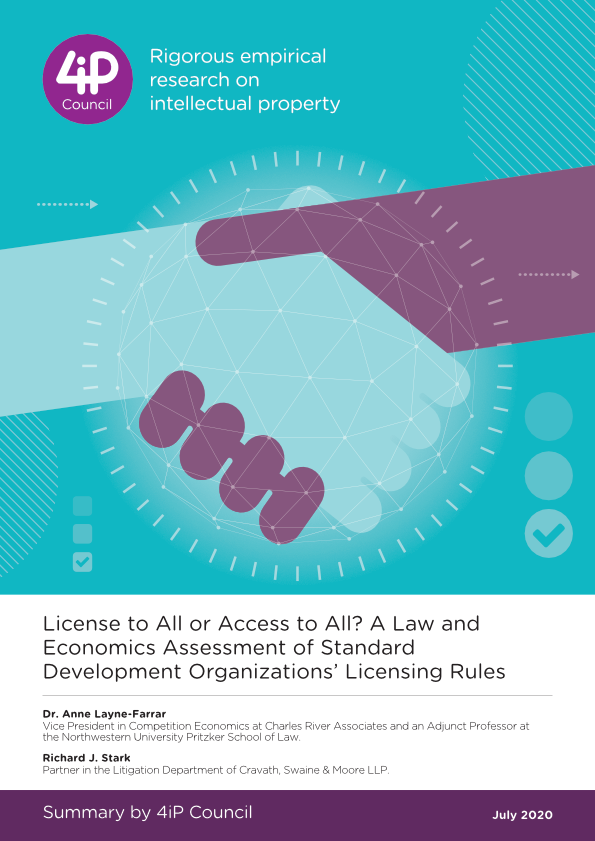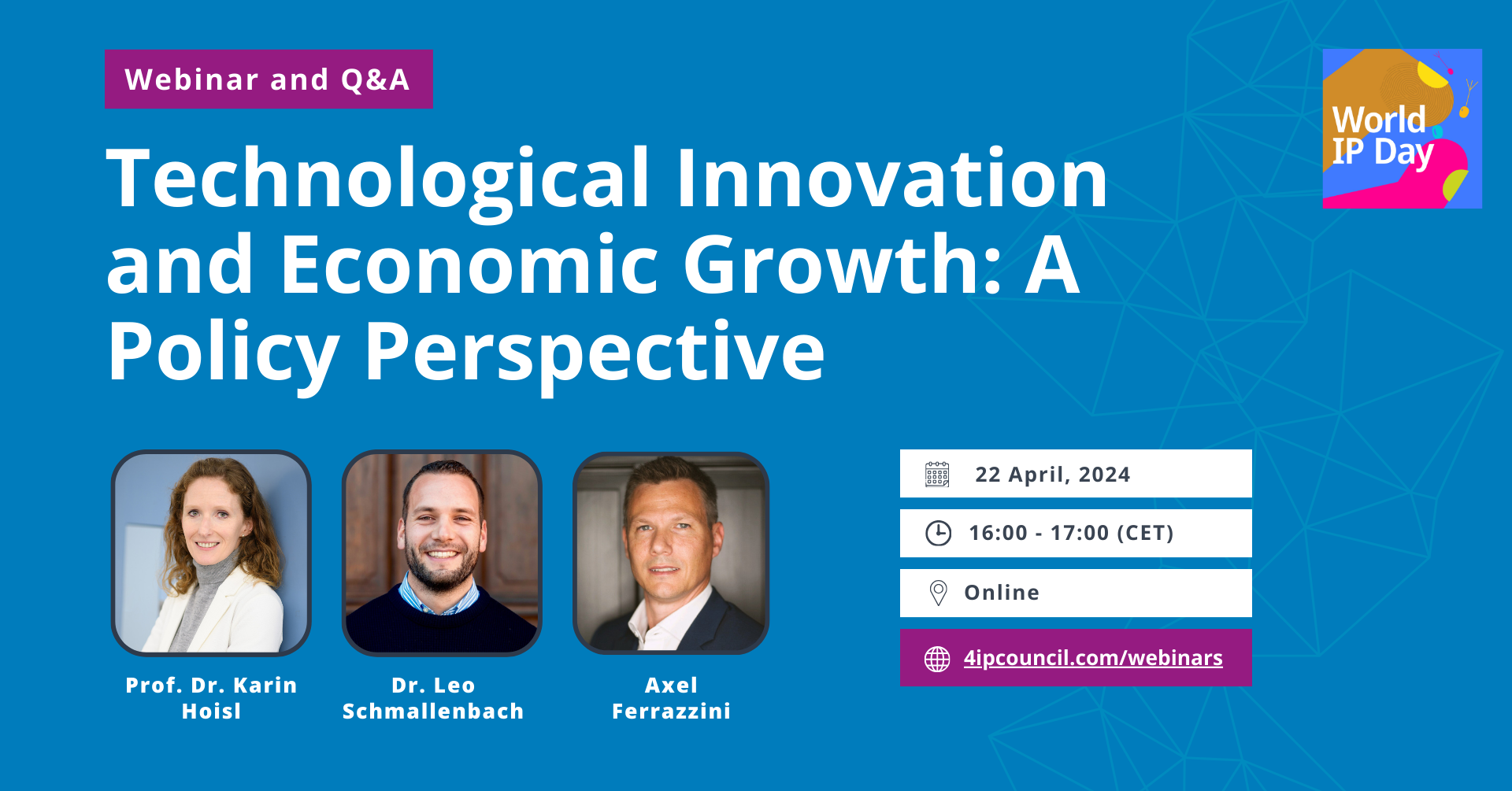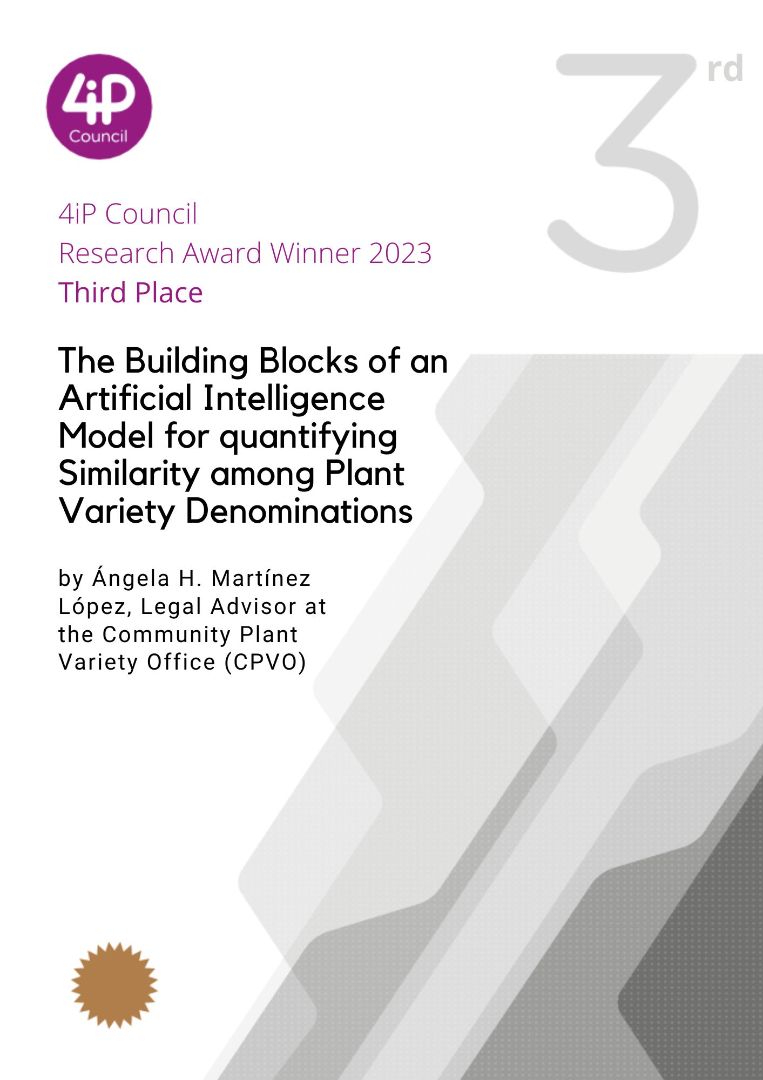License to All or Access to All? A Law and Economics Assessment of Standard Development Organizations’ Licensing Rules
Anne Layne-Farrar and Richard J. Stark. Summary by 4iP Council
Neither the law nor economic welfare justifies a “license to all” interpretation of FRAND commitments. Such a regime is not supported by patent, contract or antitrust law, and likely would be harmful to social welfare. License-to-all is a strategy to try to force SEP holders to license their patents to component makers, in an effort to drive royalty negotiations (and litigations) toward lower numbers. Essentially, it is a tactic to game FRAND obligations and exhaustion law to the detriment of SEP holders.
*************************************************************************************
Proponents of “license-to-all” argue:
- All entities in the chain of production of standardized products need licenses to SEPs to be able to participate in the relevant industries.
- Because of the need for licenses, the FRAND commitments entered into by SEP holders should be interpreted to require the holders to grant licenses to all comers to carry out their part of the production chain.
Proponents of “access-to-all” argue:
- Not all entities need SEP licenses
- FRAND commitments do not necessarily require that SEP holders grant licenses to all comers, only that they make their patented technologies available by granting licenses on FRAND terms and conditions.
At its root, the license-to-all argument concerns the amount of royal es to be paid.
The license-to-all argument is a strategy to try to force SEP holders to license their patents, to component makers, in an effort to focus discussions about royal es on the prices of components rather than end-user devices. This would be desirable for implementers.






